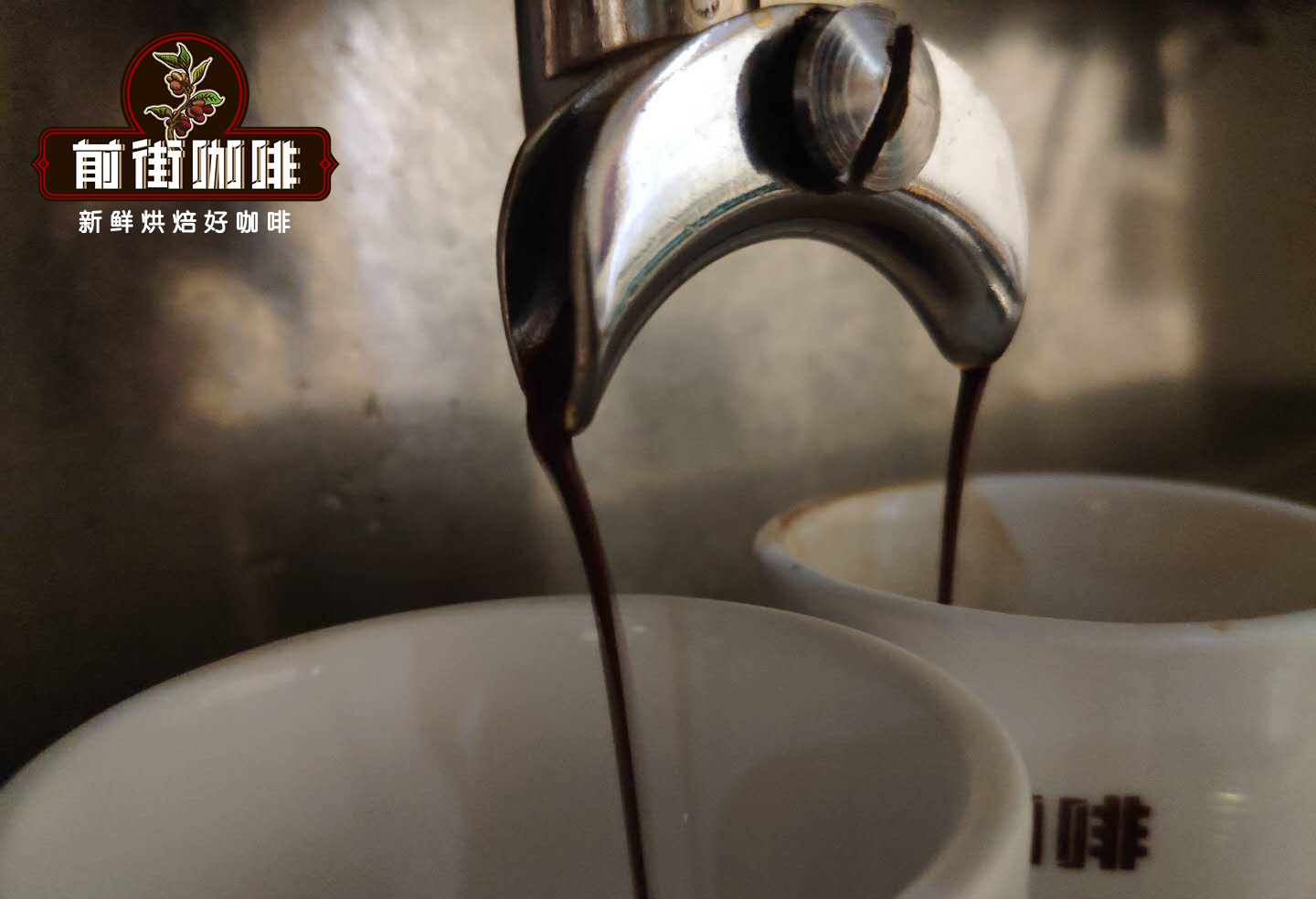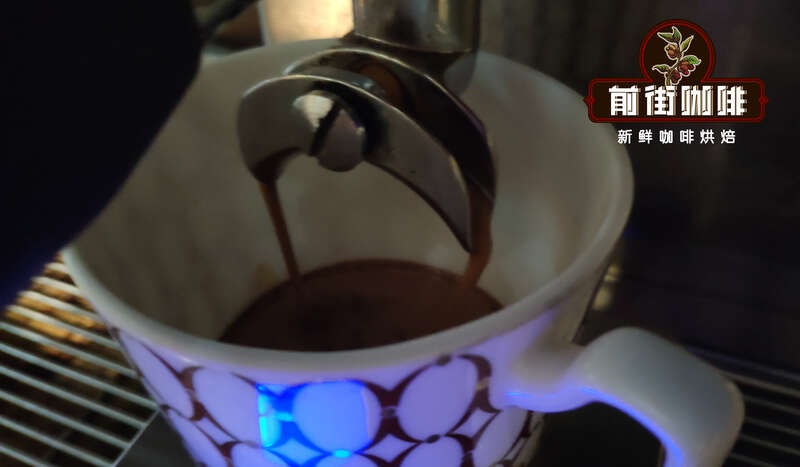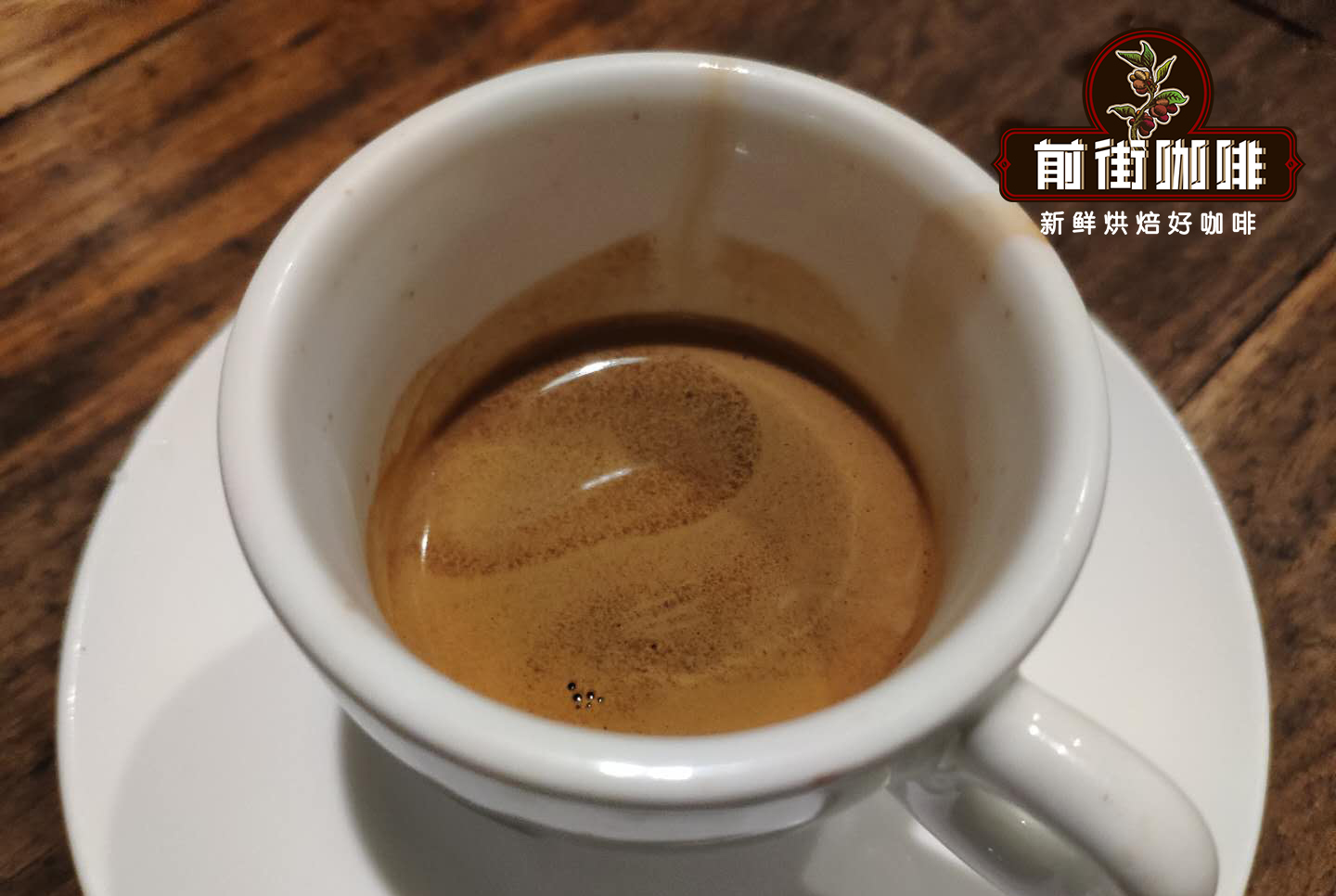What kind of espresso is good to concentrate? Why is there always a scorched smell in concentration?

Because of the natural tight structure of coffee beans, if you want to extract the coffee liquid quickly, you must go through fine grinding to make the water have a higher extraction ability, and then make espresso through the high pressure of the espresso machine.
A seemingly simple process, baristas must use the correct extraction parameters according to the roasting degree of the coffee beans to ensure that the coffee is extracted ideally. The extraction scheme of coffee requires the use of appropriate grinding scale, powder quantity, powder-liquid ratio and extraction time. Other factors further affect the details of the extraction scheme depending on the equipment used, the mineral content of the water, and so on.
We can tell whether the espresso extracted by this extraction process tastes right. Then, espresso can be divided into three categories, including under-extraction, over-extraction or ideal extraction. You can judge the degree of coffee extraction according to the characteristics and taste of coffee extracted at different levels.
Insufficient extraction
Insufficient extraction means that in the process of extraction, when there is not enough coffee dissolved in water. It usually occurs when the coffee powder is ground too coarsely or the extraction time is too short. Such an extraction state is usually accompanied by the following flavor characteristics:
Sour-there is an aggressive smell on the front of your tongue. Taste intensity-has an unpleasant impact taste. Flavor persistence-short and sharp, with charred taste, short finish and easy to dissipate.
Excessive extraction
If too much coffee is dissolved in water, there will be over-extracted coffee. In contrast to insufficient extraction, if the coffee grounds are too fine or the extraction time is too long, the following will occur:
The bitterness that hinders the mouth-the back of the tongue feels dry. Taste intensity-insipid and empty, and lack of acid. Flavor persistence-the flavor is long and has a lingering flaw.
Ideal extraction
An ideal espresso should be able to strike a balance between the various elements, taste bright, and feel sweet but not bitter in the throat after drinking it. To put it more specifically, it is necessary to have moderate sour, bitter, sweet, rich taste, solid and mellow consistency, long-lasting.
Sweetness-there is a sweet taste space between very sour and particularly bitter. This is the goal of many people, not only for baristas, but also for bakers, adjusting a perfect baking curve to produce the natural sweetness of coffee. A good cup of coffee should be sweet enough even without sugar.
Balance-this is a balanced taste that fills the entire mouth, not just the front, side or back of the tongue, but resonates with the taste on the tongue.
The flavor is layered-a good cup of espresso is often more complicated. The layered flavor includes the taste that will be felt at the beginning of the pleasure, the flavor that will be felt in the middle and the taste at the end of the rhyme.

High definition-with the rise of boutique coffee, the flavor of coffee beans has been paid more and more attention, and flavor clarity has been paid more and more attention. That is, if coffee tastes like milk chocolate, it really tastes like milk chocolate.
Why do some concentrates taste scorched?
Extraction time
The reason why your espresso tastes scorched is probably because the coffee is overextracted. This is because the hot water has been in contact with the coffee for too long, and too many substances in the coffee are extracted, making it charred or bitter.
Generally speaking, a double espresso takes 20 to 30 seconds to extract, and if your espresso takes longer, you should take steps to reduce the time it takes.
Or can also be adjusted through grinding, not grinding so fine, will be able to reduce the coffee extraction time, reduce the scorched flavor of extraction.
Temperature setting
Another thing that may cause the taste of your espresso to become charred is that the water temperature is too high.
If the temperature of the water passing through the coffee is too high, it will cause more oil in the coffee to be extracted, which will lead to a more bitter taste and may also lead to its scorched taste.

The burning smell of coffee beans
The raw beans of coffee beans vary greatly from place of origin. If you use different coffee beans, no matter how you adjust them, they will taste burnt, then it may be because there is something wrong with the beans you are using.
Some raw beans can cause defective flavors when stored improperly, and the chemical changes caused by the high temperature of these affected flavor substances during baking can give the beans a scorched taste.
The cooked coffee beans vary greatly depending on the degree of roasting. If you use deep roasting to make espresso, you are more likely to have a burnt taste. After entering the boutique coffee, many roasters tend to roast the coffee beans shallower. So you can choose to use moderately roasted coffee beans to make espresso, which can improve the perception of acidity while reducing the burnt taste.
Powder pressing mode
If you press the powder too hard, it means it's harder for the water to get through pressed powder. This causes hot water to pass through the gaps in the coffee pressed powder, creating a channel effect, causing more bitter and charred flavors to be extracted.
Coffee beans that are too fresh
Coffee beans that are too fresh can also cause a burning smell. It is generally recommended that coffee be discharged after roasting and extracted after a period of soy cultivation and the release of carbon dioxide produced during roasting. Not having enough time to release trapped carbon dioxide can also lead to the smell of burning.
Important Notice :
前街咖啡 FrontStreet Coffee has moved to new addredd:
FrontStreet Coffee Address: 315,Donghua East Road,GuangZhou
Tel:020 38364473
- Prev

Flavor and taste performance of hand-made Kilimanjaro coffee grown in Tanzania
Professional coffee knowledge exchange more coffee bean information please follow the coffee workshop (Wechat official account cafe_style) Tanzania coffee with soft acidity and smooth taste has won a lot of coffee lovers who like African coffee but do not like bright sour coffee lovers. Despite its proximity to Kenya, the coffee flavor in Tanzania is softer and more balanced than in Kenya.
- Next

Flavor characteristics of Zimbabwe Coffee beans in African Zimbabwe Coffee producing area & Zimbabwe Coffee beans
For more information on coffee beans, please follow the coffee workshop (Wechat official account cafe_style). Coffee from Zimbabwe is seldom heard these days. Zimbabwe used to be the same as Brazil, Kenya, Ethiopia and other big producers. Since 2000, due to political unrest and other reasons, Zimbabwe's coffee industry has fallen off a cliff, even though Zimbabwe
Related
- Beginners will see the "Coffee pull flower" guide!
- What is the difference between ice blog purified milk and ordinary milk coffee?
- Why is the Philippines the largest producer of crops in Liberia?
- For coffee extraction, should the fine powder be retained?
- How does extracted espresso fill pressed powder? How much strength does it take to press the powder?
- How to make jasmine cold extract coffee? Is the jasmine + latte good?
- Will this little toy really make the coffee taste better? How does Lily Drip affect coffee extraction?
- Will the action of slapping the filter cup also affect coffee extraction?
- What's the difference between powder-to-water ratio and powder-to-liquid ratio?
- What is the Ethiopian local species? What does it have to do with Heirloom native species?

